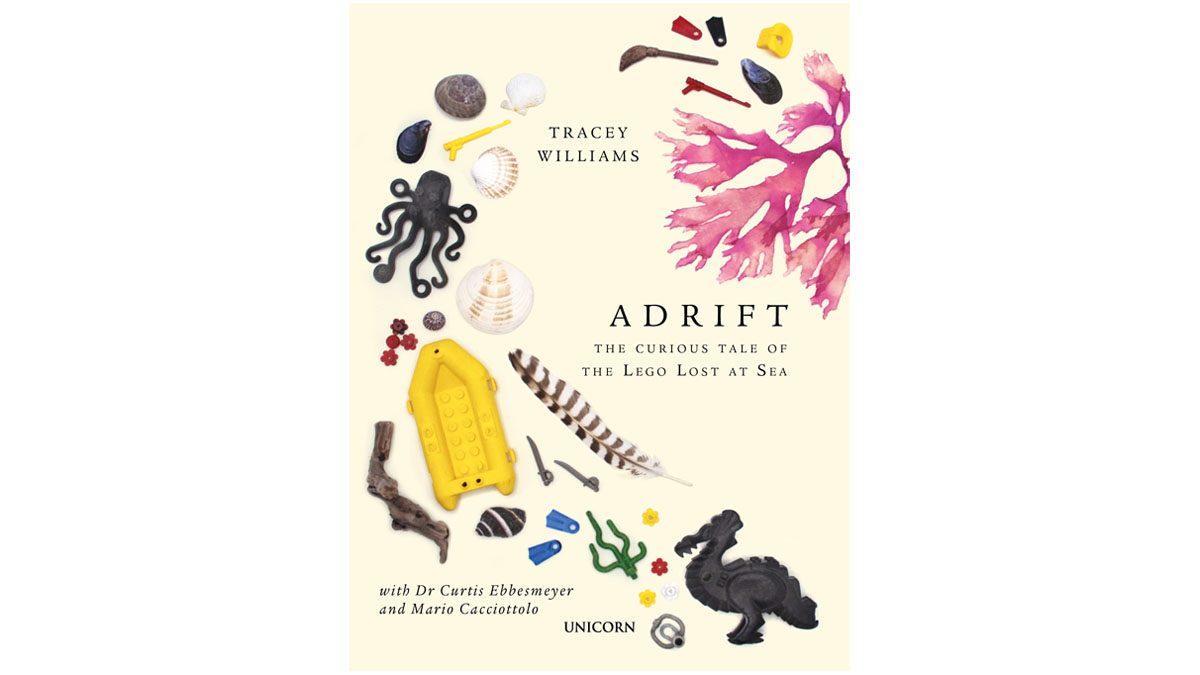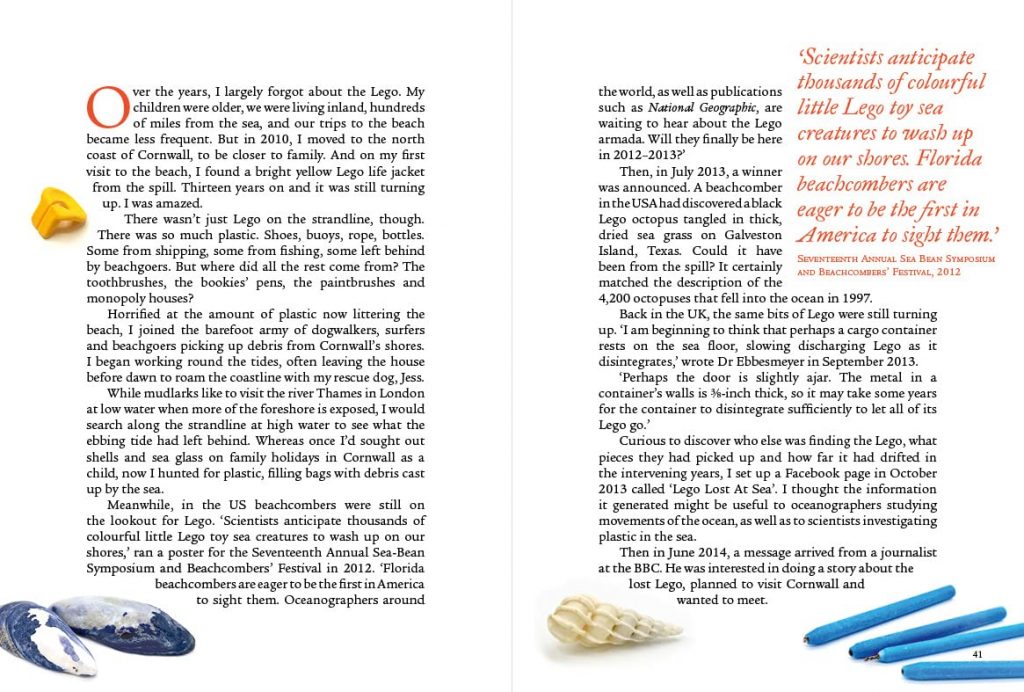Book Review: Adrift: The Curious Tale of the Lego Lost at Sea
Adrift: The Curious Tale of the Lego Lost at Sea is a fascinating, charming and occasionally unsettling insight into 1997’s Lego spill.

I went into Adrift: The Curious Tale of the Lego Lost at Sea expecting a factual if sometimes dry recount of the 1997 container spill that set millions of largely sea-themed Lego pieces tumbling into the ocean. What I got was a beautifully-framed tale that also serves as a warning as to our treatment of the planet.
If you’ve never heard of the incident in question, don’t worry. I was similarly ignorant until this book drifted (sorry) into my Amazon recommendations. The result that there were – are – millions of pieces of Lego floating around, many of which washed (and are still washing up) up on the beaches of Cornwall.
Adrift: The Curious Tale of the Lego Lost at Sea, penned by Tracey Williams, touches on circumstances of the event. But it’s the aftermath that proves so fascinating, as Williams talks about how prized these beachcombing finds are, even today.
Are these finds worth real money? Probably not, but they’re still treasured by those who find them. I had to grin at Williams’ account of how sought after black Lego octopuses (or octopi) are. Gorgeously presented, Adrift isn’t short on pictures but the image of a tiny, Lego octopus ‘hiding’ amongst a bunch of black seaweed had me grinning.

People sometimes criticise journalists for weaving themselves into events. But, as the creator of a Facebook page about the spill, Williams deserves her part in this story. And that’s no bad thing, since her first-hand experience of combing for Lego undoubtedly enriches the book. It also serves a warning about the state of our oceans. Williams also talks about the other plastic – pens, combs and so, so many other items – that litters the beaches she visits.
But Adrift folds in so many other perspectives too. She’s spoken to locals for whom Lego-combing is a family tradition as well as visitors who journey to these shores just to bag their own black octopus or plastic dragon. No, I’m not making this up: at least a handful of tourists have come to Cornwall for just this purpose.
There are even organised Lego collecting trips, though the cynic in me wonders if any of the tour guides ever plant the odd black octopus, just so they go home having found something. Adrift also features the voices of Mario Cattiotolo, the journalist who got Williams’ story on the BBC, and Dr Curtis Ebbermeyer, an oceanographer who tried predict where the pieces would end up next.
I could go on, but if you’ve even the slightest interest in Lego, beachcombing or environmentalism, Adrift: The Curious Tale of the Lego Lost at Sea is a must read. It’s absolutely enthralling and every bit as much a treasure as any seaborne Lego cutlass or tiny, sandy scuba tank.
Though, now I think about it… how much is a train ticket to Cornwall these days?
